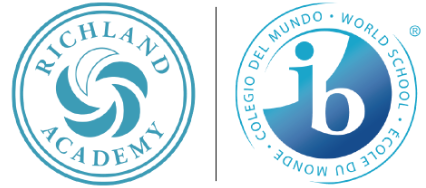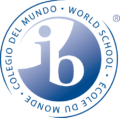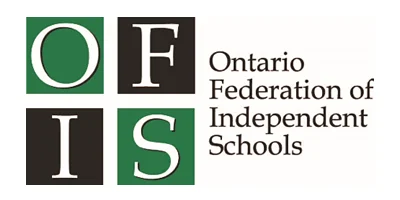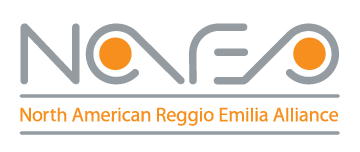International Baccalaureate (IB)
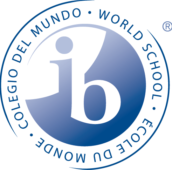
Richland Academy is proud to be an International Baccalaureate® (IB) World School, delivering the Primary Years Programme (PYP) since 2018. We are a candidate* school for the Middle Years Programme (MYP). The IB enables students to direct their own learning pathway and develop the skills and confidence they need to thrive and make a lasting difference.
*Only schools authorized by the IB Organization can offer any of its four academic programmes: the Primary Years Programme (PYP), the Middle Years Programme (MYP), the Diploma Programme (DP), or the Career-related Programme (CP). Candidate status gives no guarantee that authorization will be granted.
About the IB
The International Baccalaureate aims to develop inquiring, knowledgeable and caring young people who help to create a better and more peaceful world through intercultural understanding and respect.
To this end the organization works with schools, governments and international organizations to develop challenging programmes of international education and rigorous assessment.
These programmes encourage students across the world to become active, compassionate and lifelong learners who understand that other people, with their differences, can also be right.
You can learn more about the IB program on their website.
The IB Learner Profile
The International Baccalaureate® (IB) learner profile describes a broad range of human capacities and responsibilities that go beyond academic success.
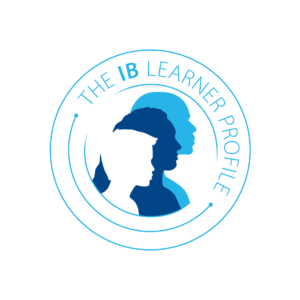
The IB learner profile places the student at the centre of an IB education. The 10 attributes reflect the holistic nature of an IB education. They highlight the importance of nurturing dispositions such as curiosity and compassion as well as developing knowledge and skills. They also highlight that along with cognitive development, IB programmes are concerned with students’ social, emotional and physical well-being, and with ensuring that students learn to respect themselves, others, and the world around them. IB educators help students to develop these attributes over the course of their IB education, and to demonstrate them in increasingly robust and sophisticated ways as they mature. The development of these attributes is the foundation of developing internationally minded students who can help to build a better world.
As IB learners we strive to be:
We nurture our curiosity, developing skills for inquiry and research. We know how to learn independently and with others. We learn with enthusiasm and sustain our love of learning throughout life.
We develop and use conceptual understanding, exploring knowledge across a range of disciplines. We engage with issues and ideas that have local and global significance.
We use critical and creative thinking skills to analyse and take responsible action on complex problems. We exercise initiative in making reasoned, ethical decisions.
We express ourselves confidently and creatively in more than one language and in many ways. We collaborate effectively, listening carefully to the perspectives of other individuals and groups.
We act with integrity and honesty, with a strong sense of fairness and justice, and with respect for the dignity and rights of people everywhere. We take responsibility for our actions and their consequences.
We critically appreciate our own cultures and personal histories, as well as the values and traditions of others. We seek and evaluate a range of points of view, and we are willing to grow from the experience.
We show empathy, compassion and respect. We have a commitment to service, and we act to make a positive difference in the lives of others and in the world around us.
We approach uncertainty with forethought and determination; we work independently and cooperatively to explore new ideas and innovative strategies. We are resourceful and resilient in the face of challenges and change.
We understand the importance of balancing different aspects of our lives—intellectual, physical, and emotional—to achieve well-being for ourselves and others. We recognize our interdependence with other people and with the world in which we live.
We thoughtfully consider the world and our own ideas and experience. We work to understand our strengths and weaknesses in order to support our learning and personal development.
IB Programs at Richland
Why IB is Different
International Baccalaureate (IB-PYP) programmes provides a detailed and developmentally appropriate curriculum or curriculum framework that is broad, balanced, conceptual and connected.
IB programmes offer students access to a broad and balanced range of academic studies and learning experiences. They promote conceptual learning, focusing on powerful organizing ideas that are relevant across subject areas, and that help to integrate learning and add coherence to the curriculum.
The programmes emphasize the importance of making connections, exploring the relationships between academic disciplines, and learning about the world in ways that reach beyond the scope of individual subjects. They also focus on offering students authentic opportunities to connect their learning to the world around them.
In the Primary Years Programme, learning aims to transcend traditional boundaries between subject areas. Students explore six transdisciplinary themes of global significance: who we are, where we are in place and time, how we express ourselves, how the world works, how we organize ourselves, and sharing the planet.
About International-Mindedness
The aim of all IB programmes is to develop internationally minded people who recognize their common humanity and shared guardianship of the planet. Central to this aim is international-mindedness.
International-mindedness is a multi-faceted and complex concept that captures a way of thinking, being and acting that is characterized by an openness to the world and a recognition of our deep interconnectedness to others.
To be open to the world, we need to understand it. IB programmes therefore provide students with opportunities for sustained inquiry into a range of local and global issues and ideas. This willingness to see beyond immediate situations and boundaries is essential as globalization and emerging technologies continue to blur traditional distinctions between the local, national and international.
An IB education fosters international-mindedness by helping students reflect on their own perspective, culture and identities, and then on those of others. By learning to appreciate different beliefs, values and experiences, and to think and collaborate across cultures and disciplines, IB learners gain the understanding necessary to make progress toward a more peaceful and sustainable world.
An IB education further enhances the development of international-mindedness through multilingualism. All IB programmes require the students to study, or study in, more than one language because we believe that communicating in more than one language provides excellent opportunities to develop intercultural understanding and respect. It helps the students to appreciate that his or her own language, culture and worldview is just one of many.
International-mindedness is also encouraged through a focus on global engagement and meaningful service with the community. These elements challenge the student to critically consider power and privilege, and to recognize that he or she holds this planet and its resources in trust for future generations. They also highlight the focus on action in all IB programmes: a focus on moving beyond awareness and understanding to engagement, action and bringing about meaningful change.
The components of an IB education described in this document work together to support the IB’s overarching aim of developing international-mindedness.
Approaches to Learning
Our focus on approaches to learning is grounded in the belief that learning how to learn is fundamental to a student’s education.
The five categories of interrelated skills aim to empower IB students of all ages to become self-regulated learners who know how to ask good questions, set effective goals, pursue their aspirations and have the determination to achieve them. These skills also help to support students’ sense of agency, encouraging them to see their learning as an active and dynamic process.
The same five categories of skills span all IB programmes, with the skills then emphasized in developmentally appropriate ways within each programme. The five categories are:
- thinking skills, including areas such as critical thinking, creative thinking and ethical thinking
- research skills, including skills such as comparing, contrasting, validating and prioritizing information
- communication skills, including skills such as written and oral communication, effective listening, and formulating arguments
- social skills, including areas such as forming and maintaining positive relationships, listening skills, and conflict resolution
- self-management skills, including both organisational skills, such as managing time and tasks, and affective skills, such as managing state of mind and motivation.
The development of these skills plays a crucial role in supporting the IB’s mission to develop active, compassionate and lifelong learners. Although these skills areas are presented as distinct categories, there are close links and areas of overlap between them, and these categories should be seen as interrelated.

